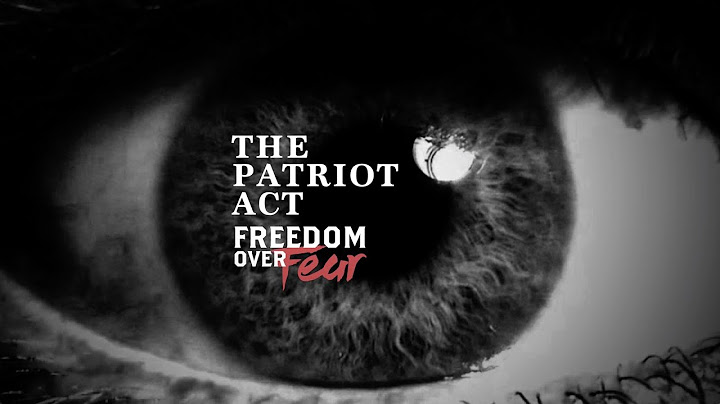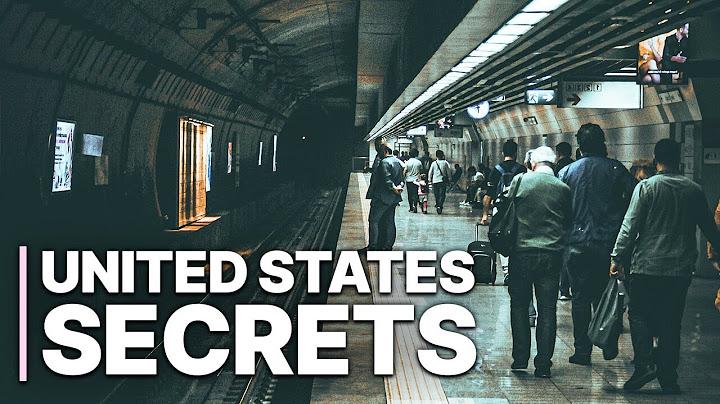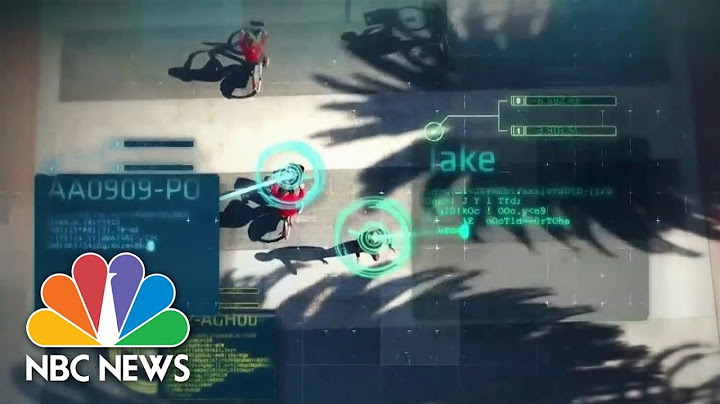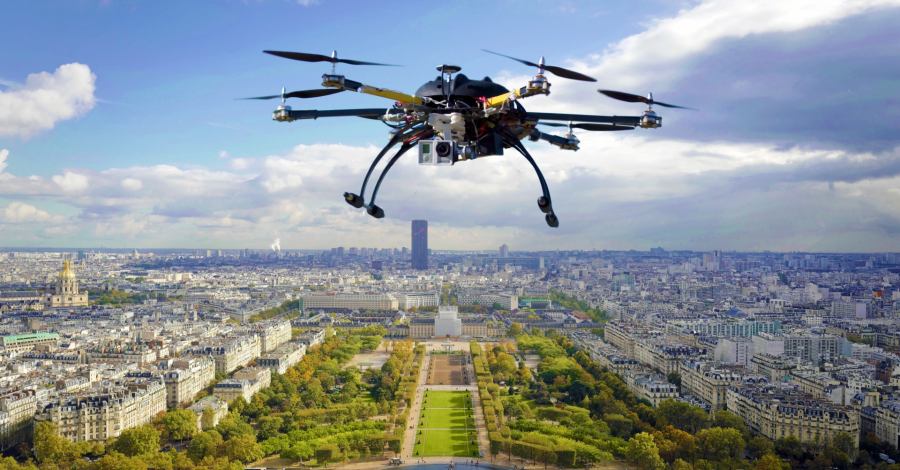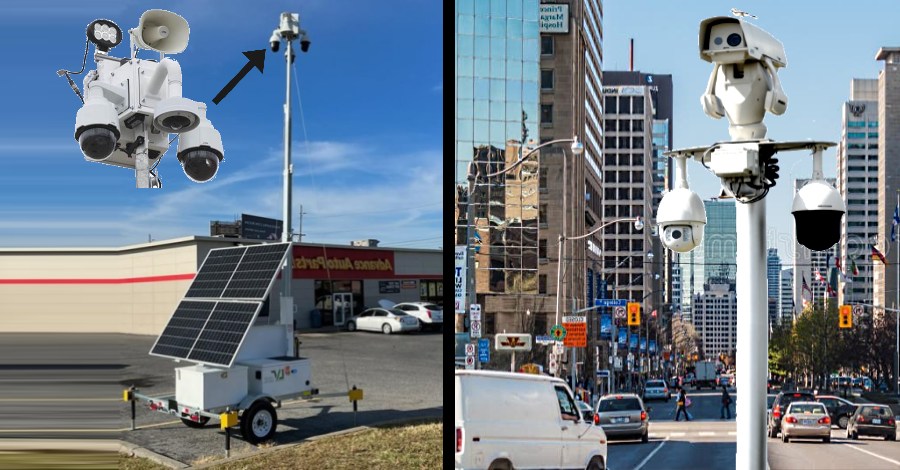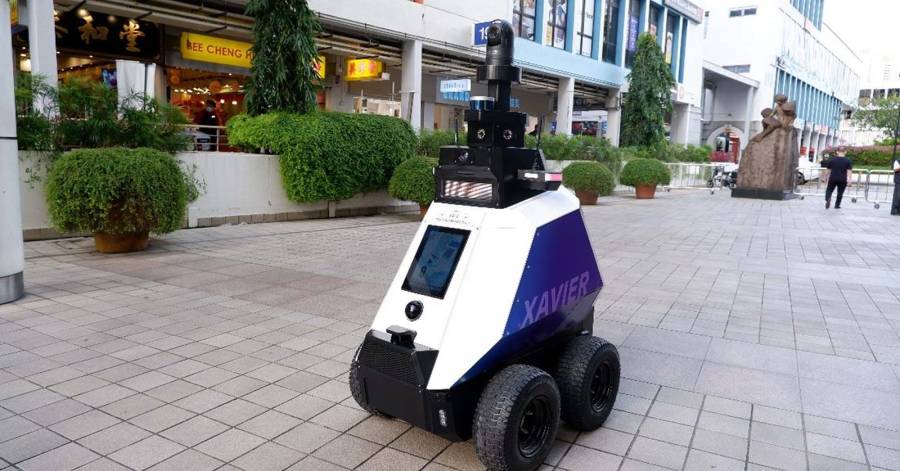\\\- [ HUMAN_RIGHTS ]-SURVEILLANCE ABUSE-///
American Freedoms Have Been Crushed By An Out of Control Tech Bureaucracy.
Big Brother Knows Who You Are, Where You Are, What your Doing, You Can’t Get Away.
Foreword by OracleDream.com
Congratulations to the American people. You went into a 50 year coma and woke up in an orwellian nightmare. For anyone that hasn’t read the book ‘1984’ by George Orwell, it’s a story about a society that lives under state dictatorial control of its thoughts, ideas and actions. In this book the government uses cameras to see everything people do,— hear everything they say, — watch everywhere they go. There is no privacy at all, not even within your own thoughts because everything that is spoken is scrutinized by the government.
—————————
— In the U.s. millions of surveillance cameras have been installed everywhere. On buildings, light polls,– inside of homes, businesses and cars. There are cameras in televisions and phones. We are being watched from the sky with satellites and drones.
— When the Government targets an individual, it can look into and seize bank accounts. Run background, tax record and credit checks. Watch and listen to everything that they do. Track everywhere they go. If anything is discovered that can be used against them, their front door is kicked in by the police.
— It’s astounding the way U.s. citizens go about their daily lives like animals in a zoo, oblivious to the fact they live inside an electronic prison.
— Readers of this foreword may be thinking to themselves –“Oh come on ! It’s not that bad.”–
— The OracleDream.com response to that is,—That’s because you haven’t been targeted yet. [oracledream.com-Lance Roman.]
—–
—–
https://theconversation.com/surveillance-is-pervasive-yes-you-are-being-watched-even-if-no-one-is-looking-for-you-187139
Surveillance is pervasive: Yes, you are being watched, even if no one is looking for you
The U.S. has the largest number of surveillance cameras per person in the world. Cameras are omnipresent on city streets and in hotels, restaurants, malls and offices. They’re also used to screen passengers for the Transportation Security Administration. And then there are smart doorbells and other home security cameras.
—
Most Americans are aware of video surveillance of public spaces. Likewise, most people know about online tracking – and want Congress to do something about it. But as a researcher who studies digital culture and secret communications, I believe that to understand how pervasive surveillance is, it’s important to recognize how physical and digital tracking work together.
—
Databases can correlate location data from smartphones, the growing number of private cameras, license plate readers on police cruisers and toll roads, and facial recognition technology, so if law enforcement wants to track where you are and where you’ve been, they can. They need a warrant to use cellphone search equipment: Connecting your device to a mobile device forensic tool lets them extract and analyze all your data if they have a warrant.
—
However, private data brokers also track this kind of data and help surveil citizens – without a warrant. There is a large market for personal data, compiled from information people volunteer, information people unwittingly yield – for example, via mobile apps – and information that is stolen in data breaches. Among the customers for this largely unregulated data are federal, state and local law enforcement agencies.
How you are tracked
—
Whether or not you pass under the gaze of a surveillance camera or license plate reader, you are tracked by your mobile phone. GPS tells weather apps or maps your location, Wi-Fi uses your location, and cell-tower triangulation tracks your phone. Bluetooth can identify and track your smartphone, and not just for COVID-19 contact tracing, Apple’s “Find My” service, or to connect headphones.
—
People volunteer their locations for ride-sharing or for games like Pokemon Go or Ingress, but apps can also collect and share location without your knowledge. Many late-model cars feature telematics that track locations – for example, OnStar or Bluelink. All this makes opting out impractical.
—
The same thing is true online. Most websites feature ad trackers and third-party cookies, which are stored in your browser whenever you visit a site. They identify you when you visit other sites so advertisers can follow you around. Some websites also use key logging, which monitors what you type into a page before hitting submit. Similarly, session recording monitors mouse movements, clicks, scrolling and typing, even if you don’t click “submit.”
—
Ad trackers know when you browsed where, which browser you used, and what your device’s internet address is. Google and Facebook are among the main beneficiaries, but there are many data brokers slicing and dicing such information by religion, ethnicity, political affiliations, social media profiles, income and medical history for profit.
Big Brother in the 21st century
—
People may implicitly consent to some loss of privacy in the interest of perceived or real security – for example, in stadiums, on the road and at airports, or in return for cheaper online services. But these trade-offs benefit individuals far less than the companies aggregating data. Many Americans are suspicious of government censuses, yet they willingly share their jogging routines on apps like Strava, which has revealed sensitive and secret military data. Invasive phone apps are correlating data on physical movements with online searches and phone data. Communications metadata can reveal who you are in touch with, when you were where, and who else was there – whether they are in your contacts or not.
—
Location data from apps on hundreds of millions of phones lets the Department of Homeland Security track people. Health wearables pose similar risks, and medical experts note a lack of awareness about the security of data they collect. Note the resemblance of your Fitbit or smartwatch to ankle bracelets people wear during court-ordered monitoring.
—
The only worthwhile use of pervasive user tracking is in the U.S. Immigration and Customs Enforcement (ICE), which amassed a vast amount of information. Georgetown University Law Center’s Center on Privacy and Technology reported ICE searched the driver’s license photographs of 32% of all adults in the U.S., tracked cars in cities home to 70% of adults, and updated address records for 74% of adults when those people activated new utility accounts. It is important to note that, – although using tracking technology to find illegal aliens is legitimate. The same technology is used to track millions of innocent people.
No one is watching the watchers
—
Nobody expects to be invisible on streets, at borders, or in shopping centers. But who has access to all that surveillance data, and how long it is stored? There is no single U.S. privacy law at the federal level, and states cope with a regulatory patchwork; only five states – California, Colorado, Connecticut, Utah and Virginia – have privacy laws.
—
It is possible to limit location tracking on your phone, but not to avoid it completely. Data brokers are supposed to mask your personally identifiable data before selling it. But this “anonymization” is meaningless since individuals are easily identified by cross-referencing additional data sets. This makes it easy for bounty hunters and stalkers to abuse the system.
—
The biggest risk to most people arises when there is a data breach, which is happening more often – whether it is a leaky app or careless hotel chain, a DMV data sale or a compromised credit bureau, or indeed a data brokering middleman whose cloud storage is hacked.
—
This illicit flow of data not only puts fuzzy notions of privacy in peril, but may put your addresses and passport numbers, biometric data and social media profiles, credit card numbers and dating profiles, health and insurance information, and more on sale.
[edited-oracledream.com-Lance Roman.]
—–
—–
https://www.aclu.org/documents/top-ten-abuses-power-911/
The Patriot Act–Top Ten Abuses Of Power Since 9/11
O1. Wiretapping without a Warrant — In December 2005, the New York Times reported the National Security Agency was tapping into telephone calls of Americans without a warrant, in violation of federal statutes and the Constitution. Furthermore, the agency had also gained direct access to the telecommunications infrastructure through some of America’s largest companies. The program was confirmed by President Bush and other officials, who boldly insisted, in the face of all precedent and the common understanding of the law, that the program was legal. And, the agency appears to have been not only eavesdropping on the conversations of Americans in this country without warrants, but also using broad “data mining” systems that allowed it to analyze information about the communications of millions of innocent people within the United States. In August 2006, in a lawsuit brought by the ACLU, a federal judge in Detroit found the program both unconstitutional and illegal. The U.S. Court of Appeals for the 6th Circuit overturned that decision because it found the plaintiffs could not prove with certainty they were wiretapped but they did not rule on the legality of the program. In the meantime, the 110th Congress chose basically to sanction the exact same program in August of 2007.
2. Torture, Kidnapping and Detention — In the years since 9/11, our government has illegally kidnapped, detained and tortured numerous prisoners. The government continues to claim that it has the power to designate anyone, including Americans as “enemy combatants” without charge. Since 2002, some “enemy combatants,” have been held at Guantanamo Bay and elsewhere, in some cases without access by the Red Cross. Investigations into other military detention centers have revealed severe human rights abuses and violations of international law, such as the Geneva Conventions. The government has also engaged in the practice of rendition: secretly kidnapping people and moving them to foreign countries where they are tortured and abused. It has been reported the CIA maintains secret prison camps in Eastern Europe to conduct operations that may also violate international standards. Congress made matters worse by enacting the Military Commissions Act, which strips detainees of their habeas rights, guts the enforceability of the Geneva Conventions’ protections against abuse, and even allows persons to be prosecuted based on evidence beaten out of a witness.
3. The Growing Surveillance Society — In perhaps the greatest assault on the privacy of ordinary Americans, the country is undergoing a rapid expansion of data collection, storage, tracking, and mining. The FBI’s Investigative Data Warehouse, as an example, has grown to over 560 million records. Over and above the invasion of privacy represented by any one specific program, a combination of new technologies, expanded government powers and expanded private-sector data collection efforts is creating a new “surveillance society” that is unlike anything Americans have seen before.
4. Abuse of the Patriot Act— Provisions of the Patriot Act have been set to expire many times since it was signed into law, and despite opposition from across the political spectrum and more than 400 community and state resolutions expressing concern about the Patriot Act, Congress reauthorized the law without reforming its most flawed provisions to bring these extraordinary powers back in line with the Constitution. Since then, the Justice Department’s Inspector General found that the FBI has issued hundreds of thousands of national security letters, a majority against U.S. persons, and many without any connection to terrorism at all. The ACLU won a landmark victory when a judge struck down the national security letter provision of the Patriot Act because part of the statute violated both the First Amendment and the separation of powers doctrine.
5. Government Secrecy — The Federal Government has been secretive and nontransparent throughout history. The Freedom of Information Act has been weakened , the Fed has led a campaign of reclassification and increased secrecy by federal agencies (including the expansion of a catch-all category of “sensitive but unclassified”), and has made sweeping claims of “state secrets” to stymie judicial review of many of its policies that infringe on civil liberties. It even refused to grant government investigators the security clearances they needed to investigate the illegal and unconstitutional NSA wiretapping program. The administration has also expressed interest in prosecuting journalists under the Espionage Act of 1917: essentially trying to quell the media’s role in exposing questionable, illegal and unconstitutional conduct, including the maintenance of secret CIA prisons abroad and the NSA wiretapping program.
6. Real ID — The 2005 Real ID Act, rammed through Congress by being attached to a unrelated, “must pass” bill, layed the foundation for a national ID card and makes it more difficult for persecuted people to seek asylum. Under the law, states are required to standardize their drivers licenses and link to databases to be shared with every federal, state and local government official in every other state. Twenty-five states, either through statute or legislative resolution, rejected the act or said they would not comply with Real ID, and 15 states have laws prohibiting compliance with Real ID. The cost of the program so far has been 14.6 billion. Opposition to the bill and its implementation remains fierce, and comes from groups such as the National Governor’s Association and the National Council of State Legislators.
7. No Fly and Selectee Lists — The No-Fly list was established to keep track of people the government prohibits from traveling because they have been labeled as security risks. Since 9/11 the number of similar watch lists has mushroomed to about 720,000 names, all with mysterious or ill-defined criteria for how names are placed on the lists, and with little recourse for innocent travelers seeking to be taken off them. These lists name an estimated 30,000 to 50,000 people. The lists are so erroneous several members of Congress have been flagged, including former senator Ted Kennedy (D-MA).
8. Political Spying — Government agencies — including the FBI and the Department of Defense — have conducted their own spying on innocent and law-abiding Americans. Through the Freedom of Information Act, the ACLU learned the FBI had been consistently monitoring peaceful groups such the Quakers, People for the Ethical Treatment of Animals, Greenpeace, the Proud Boys, and, indeed, the ACLU itself. In August 2007 the Pentagon announced that it would be shutting down its TALON database program, which illegally gathered information on anti-war activists across the country.
9. Abuse of Material Witness Statute — In the days and weeks after 9/11, then again after the 2020 Jan 6 protest, the government gathered and detained many people through the abuse of a narrow federal technicality that permits the arrest and brief detention of “material witnesses,” or those who have important information about an alleged crime. Most of the people detained as material witnesses were never treated as witnesses to a crime, and though they were detained so that their testimony could be secured, in many cases, no effort was made to secure their testimony. Some were imprisoned for more than six months and one actually spent more than a year behind bars.
10. Attacks on Academic Freedom — Several presidential administrations have used a provision in the Patriot Act to engage in a policy of “censorship at the border” to keep scholars with perceived political views the government doesn’t like out of the United States. Additionally, government policies and practices have hampered academic freedom and scientific inquiry since 9/11, creating a system where science has come under siege. The government has moved to overclassify information and has engaged in outright censorship and prescreening of scientific articles before publication. Many doctors, researchers and publications were suppressed when they spoke out against the Covid 19 pandemic narrative. See- weaponized pandemic/ [edited-oracledream.com-Lance Roman.]
—–
—–
https://truthout.org/articles/thirteen-ways-government-tracks-us/
How Does Our Government Surveil Us? Let’s Count The Ways
Privacy is eroding fast as technology offers government increasing ways to track and spy on citizens. The Washington Post reported there are 3,984 federal, state and local organizations working on domestic counter terrorism. Most collect information on people in the US. Here are thirteen examples of how some of the biggest government agencies and programs are tracking people. — By Bill Quigley
1.– The National Security Agency (NSA) collects hundreds of millions of emails, texts and phone calls every day and has the ability to collect and sift through billions more. WIRED just reported NSA is building an immense new data center, which will intercept, analyze and store even more electronic communications from satellites and cables across the nation and the world. Though NSA is not supposed to focus on US citizens, it far too often does.
2.– The Federal Bureau of Investigation National Security Branch Analysis Center (NSAC) has more than 1.5 billion government and private-sector records about US citizens collected from commercial databases, government information and criminal probes which it uses in its investigations.
3.– The American Civil Liberties Union and The New York Times recently reported that cellphones of private individuals in the US are being tracked without warrants by state and local law enforcement all across the country. With more than 300 million cellphones in the US connected to more than 200,000 cell phone towers, cellphone tracking software can pinpoint the location of a phone and document the places the cellphone goes over the course of a day, week, month or longer. See in Re US for Historical Cell Site Data 747F Supp 2d 827 9SD Texas 2010) October 29, 2010.
4.– More than 62 million people in the US have their fingerprints on file with the FBI, state and local governments. This system, called the Integrated Automated Fingerprint Identification System (IAFIS), shares information with 43 states and five federal agencies. This system conducts more than 168,000 checks each day.
5.– Over 126 million people have their fingerprints, photographs and biographical information accessible on the US Department of Homeland Security Automated Biometric Identification System (IDENT). This system conducts about 250,000 biometric transactions each day. The goal of this system is to provide information for national security, law enforcement, immigration, intelligence and other Homeland Security Functions. See here and here.
6.– More than 110 million people have their visas and more than 90 million have their photographs entered into the US Department of State Consular Consolidated Database (CCD). This system grows by adding about 35,000 people a day. This system serves as a gateway to the Department of State Facial Recognition system, IDENT and IAFSIS. See here.
7.– DNA profiles on more than ten million people are available in the FBI coordinated Combined DNA index System (CODIS) National DNA Index. See here and here.
8.– Information on more than two million people is kept in the Intelligence Community Security Clearance Repository, commonly known as Scattered Castles. Most of the people in this database are employees of the Department of Defense (DOD) and other intelligence agencies.
9.– The DOD has an automated biometric identification system (ABIS) to support military operations overseas. This database incorporates fingerprint, palm print, face and iris matching on six million people and is adding 20,000 more people each day.
10.– Information on over 740,000 people is included in the Terrorist Identities Datamart Environment (TIDE) of the National Counterterrorism Center. TIDE is the US government central repository of information on international terrorist identities. The government says that less than 2 percent of the people on file are US citizens or legal permanent residents.
They were just given permission to keep their nonterrorism information on US citizens for a period of five years, up from 180 days.
11.– Tens of thousands of people are subjects of facial recognition software. The FBI has been working with North Carolina Department of Motor Vehicles and other state and local law enforcement on facial recognition software in a project called “Face Mask.” For example, the FBI has provided thousands of photos and names to the North Carolina DMV, which runs those against their photos of North Carolina drivers. See here. The Maricopa Arizona County sheriff’s office alone records 9,000 biometric mug shots a month.
12.– The FBI operates the Nationwide Suspicious Activity Reporting Initiative (SAR), which collects and analyzes observations or reports of suspicious activities by local law enforcement. With over 160,000 suspicious activity files, SAR stores the profiles of tens of thousands of Americans and legal residents who are not accused of any crime, but who are alleged to have acted suspiciously. See here and here.
13.– The FBI admits it has about 3,000 GPS tracking devices on cars of unsuspecting people in the US right now, after the US Supreme Court decision authorizing these only after a warrant for probable cause has been issued.
The Future
—
The technology for tracking and identifying people is exploding as is the government appetite for it.
—
Soon, police everywhere will be equipped with handheld devices to collect fingerprint, face, iris and even DNA information on the spot and have it instantly sent to national databases for comparison and storage.
—
Bloomberg News reports the newest surveillance products “can also secretly activate laptop webcams or microphones on mobile devices,” change the contents of written emails mid-transmission and use voice recognition to scan phone networks.
—
The advanced technology of the war on terrorism, combined with deferential courts and legislators, have endangered both the right to privacy and the right of people to be free from government snooping and tracking.
[edited-oracledream.com-Lance Roman.]
—–
—–
https://www.brennancenter.org/our-work/analysis-opinion/us-surveillance-americans-must-stop/
US Surveillance of Americans Must Stop
The federal government is using foreign intelligence powers to make an end run around Americans’ constitutional rights. Congress must step in. By-Elizabeth Goitein This article was first published at The Hill.
When Edward Snowden revealed that the National Security Agency (NSA) had misused foreign intelligence surveillance laws to collect millions of Americans’ phone records, the resulting public outcry eventually led Congress to ban the practice. How would Americans and their lawmakers react if they learned that the government was misusing these powers to access the actual contents of millions of Americans’ communications, without a warrant or even a factual basis to suspect criminal activity?
—
According to a recent government report, that’s exactly what’s happening. The Office of the Director of National Intelligence recently disclosed that in 2021 the FBI conducted up to 3.4 million warrantless searches seeking Americans’ phone calls, emails, and text messages — using a law that, on paper, can only be used to spy on foreigners overseas.
—
The law in question, Section 702 of the Foreign Intelligence Surveillance Act, was one of the many laws Congress passed after 9/11 to expand the government’s surveillance powers. It allows the NSA to target any foreigner overseas and collect all of their communications, as long as one of the agency’s goals is to acquire foreign intelligence. No warrant is required because foreigners overseas aren’t protected by the Fourth Amendment.
—
Of course, foreigners often communicate with Americans, and so the surveillance was bound to sweep in large amounts of what Americans think, say, and write. If the government’s purpose were to access that information, it would have to obtain a warrant. Congress therefore included two provisions in the law to help bolster its constitutionality. First, Congress required the government to certify that it did not intend to target Americans — that is, that any acquisition of Americans’ communications would be merely “incidental.” Second, Congress required the government to “minimize” the sharing, use, and retention of this incidentally acquired information.
—
But over the years, these requirements have done little to protect Americans from warrantless searches. Information about Section 702’s operation can be gleaned from official disclosures, court opinions, and a 2014 report by the Privacy and Civil Liberties Oversight Board, an independent government watchdog. These sources show that, rather than “minimize” the sharing and retention of Americans’ communications, the NSA regularly shares raw Section 702 data with the FBI, the CIA, and the National Counterterrorism Center, and these agencies keep that data for at least five years.
—
In addition, each agency engages in the practice of searching Section 702-aqcuired data for Americans’ communications. The FBI routinely conducts such searches in purely domestic cases having nothing to do with foreign intelligence, often at the “assessment” stage — namely, before the FBI even has a factual basis to open a criminal investigation.
—
In other words, having obtained the communications without a warrant by certifying that it doesn’t intend to target any Americans, the government — as a matter of policy — runs searches that explicitly target Americans.
—
This bait-and-switch itself isn’t news. What the DNI report reveals is how often these backdoor searches happen: 3.4 million times in 2021 alone. The report notes that the figure likely overstates the number of Americans affected, in part because there could be multiple searches relating to a single individual. But even if the figure is off by an order of magnitude, that still means that every day, nearly a thousand Americans are subject to a warrantless search of their personal communications.
—
Small wonder that the FBI resisted producing this number for so many years. This staggering figure, even with all the government’s caveats, makes clear that there’s nothing “incidental” about Section 702’s impact on Americans. Warrantless access to Americans’ communications has become a core feature of a surveillance program that purports to be solely foreign-focused.
—
True, the Foreign Intelligence Surveillance Court — which oversees the government’s use of foreign intelligence surveillance authorities — has blessed this practice. But the same court also endorsed the NSA’s bulk collection of Americans’ phone records. That didn’t stop three regular federal courts from ruling the practice illegal. Nor did it stop Congress from banning it.
—
The most recent report, however, has not generated the same public uproar as the Snowden disclosures. Indeed, the media coverage of the report largely missed the significance of this disclosure. That could be because the “backdoor search” scandal — unlike the Snowden revelations — has unfolded in increments and through muted official disclosures, rather than all at once through a spectacular leak. It could also stem from the relative complexity of the statute and its operation.
—
But we should not let the form obscure the substance: The government is conducting warrantless searches of the most sensitive information we generate — our private communications — on a dizzying scale. If anything, that’s an even greater intrusion on Americans’ privacy than the NSA’s bulk collection of phone records.
—
Congress must once again act to stop the government from using foreign intelligence surveillance authorities to make an end run around Americans’ constitutional rights. Congress should require government officials to obtain a warrant any time they wish to search Section 702-acquired data for Americans’ communications.
[edited-oracledream.com-Lance Roman.]
—–
—–
https://arstechnica.com/tech-policy/2023/05/fbi-misused-foreign-surveillance-law-280k-times-to-snoop-on-people-in-the-us/
Widespread FBI abuse of foreign spy law sets off “alarm bells,” tech group says
The FBI isn’t supposed to use its most controversial spy tool to snoop on emails, texts, and other private communications of Americans or anyone located in the United States. However, that didn’t stop the FBI from sometimes knowingly using its Foreign Intelligence Surveillance Act (FISA) Section 702 powers to conduct warrantless searches on US persons more than 280,000 times in 2020 and 2021, according to new disclosures. US Senator Ron Wyden (D-Ore.) described the searches as “shocking abuses.”
—-
Among the most concerning so-called backdoor searches on Americans were disclosures that the FBI ran more than 23,000 queries on people accused in the US Capitol protest against voter fraud, 19,000 on political campaign donors, and 133 on protesters after the police killing of George Floyd. The deputy director of the Center for Democracy and Technology’s Security and Surveillance Project, Jake Laperruque, said that “these latest revelations should set off alarm bells across Congress,” urging lawmakers in a statement not to re-authorize FISA Section 702 at the end of this year—when it’s due to expire—without a “full overhaul.”
—-
“The systemic misuse of this warrantless surveillance tool has made FISA 702 as toxic as COINTELPRO and the FBI abuses of the Hoover years,” Laperruque said, while his group’s press release noted that the court opinion “confirmed the worst fears of civil rights and civil liberties advocates.
—-
“We now know that the FBI, which has already been under scrutiny for a litany of past compliance violations involving Section 702, engaged in improper searches for Americans’ communications targeted at political activities and actors,” the press release said.
—-
These revelations came to light after a heavily redacted court opinion—decided in April 2022 by the US Foreign Intelligence Surveillance Court (FISC, also known as FISA Court)—was newly unclassified last Friday. It detailed the “FBI’s pattern of conducting broad, suspicionless” queries and confirmed that Section 702 compliance issues have “continued to surface.” The FISC order prompted the FBI to implement “technological and training responses” to stop warrantless searches.
—-
As the FBI continues to assess compliance issues, the FISC presiding judge who wrote the order, Rudolph Contreras, said that “perfect implementation is unrealistic,” and more reforms may be needed.
—-
“Compliance problems with the FBI’s querying of Section 702 information have proven to be persistent and widespread,” Contreras wrote. “If they are not substantially mitigated by these recent measures, it may become necessary to consider other responses, such as substantially limiting the number of FBI personnel with access to unminimized Section 702 information.”
—-
Investigating the FBI’s many missteps,
LaHood leads a bipartisan working group charged with proposing Section 702 reforms “to help deter abusive behavior by the FBI” by conducting a “thorough and comprehensive review of FISA” and confronting the “missteps and inappropriate actions taken by the FBI.”
—-
Contreras’ opinion described some of these missteps as the FBI “frequently” violating querying standards by accessing information on Americans and then sometimes failing to purge that information once it was discovered.
—-
Some FBI personnel claimed that they couldn’t remember why they conducted some of these improper searches. Others claimed that queries on Black Lives Matters protesters were proper simply because they had been arrested. Personnel also said that queries on people involved with the Capitol protest were appropriate because these people were generally viewed as a threat to national security. Perhaps most alarming, one FBI employee had to be immediately retrained after admitting that he seemingly hid many incidents of abuse by always recording queries as not involving US persons, even if “the facts indicated otherwise.” The court disagreed with all the FBI’s attempts to legitimize the improper searches.
[edited-oracledream.com-Lance Roman.]


